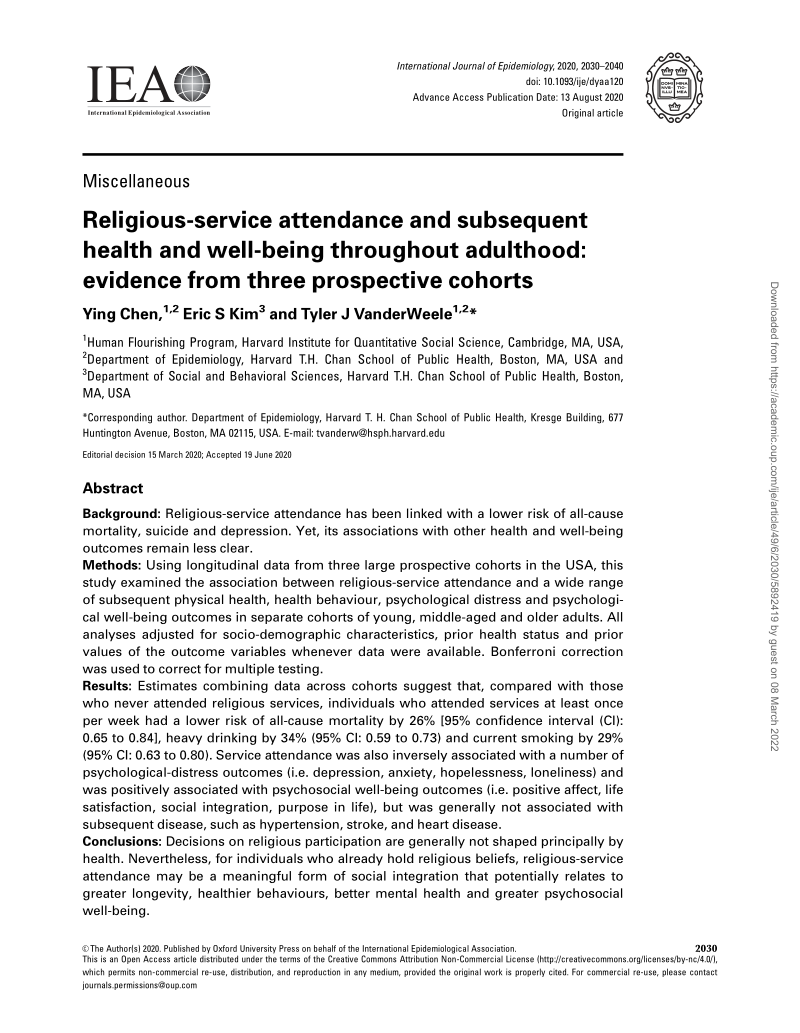Study finds that religious service attendance improves psychological well-being.
- Type
- Academic / Technical Report
- Source
- Ying Chen Non-LDS
- Hearsay
- Secondary
- Reference
Ying Chen, Eric S. Kim, Tyler J VanderWeele, "Religious-Service Attendance and Subsequent Health and Well-being throughout Adulthood: Evidence from Three Prospective Cohorts," International Journal of Epidemiology 49, no 6 (December 2020): 2033, 2037
- Scribe/Publisher
- International Journal of Epidemiology
- People
- Ying Chen, Tyler J. VanderWeele, Eric S. Kim
- Audience
- Reading Public
- Transcription
Religious-service attendance was positively associated with psychosocial well-being outcomes (Table 2). Specifically, 1/week attenders vs never-attenders had greater positive affect. . . .life satisfaction. . . .social integration. . . .and purpose in life[.]
. . . .Based on data from three prospective cohorts, this study suggests that religious-service attendance is positively associated with multiple aspects of subsequent health and wellbeing throughout adulthood. Estimates combining data across cohorts suggest that, compared with those who never attend religious services, individuals who attend services 1/week have a lower risk of all-cause mortality by 26%, heavy drinking by 34%, smoking by 29% and depression by 16%, and greater psychosocial well-being (e.g. greater purpose in life by 0.25 standard deviations).
- Citations in Mormonr Qnas
The B. H. Roberts Foundation is not owned by, operated by, or affiliated with the Church of Jesus Christ of Latter-day Saints.

